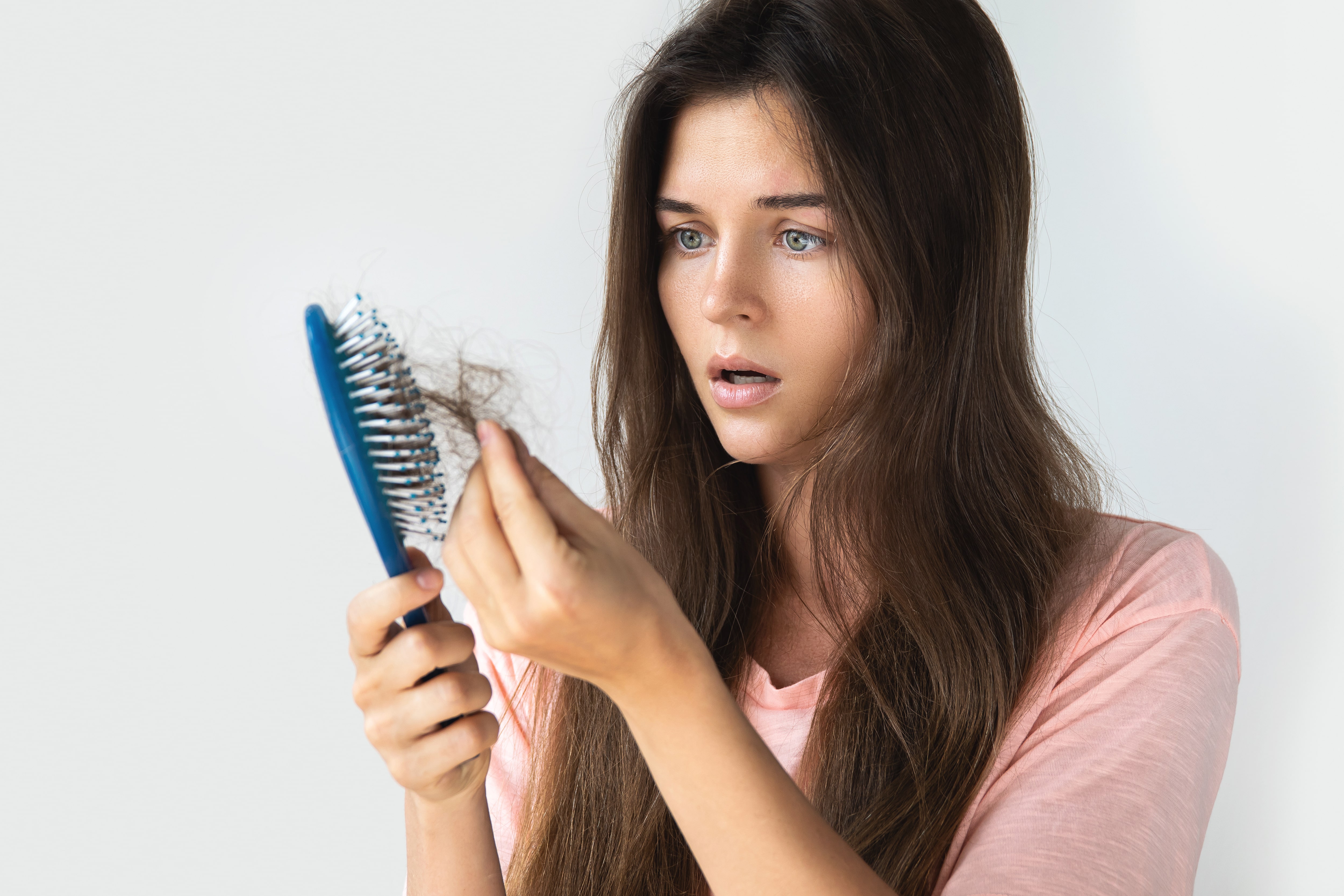Blog
Can Hard Water Cause Hair Loss

Many people notice their hair turning dull, dry, or brittle and start to wonder if the water coming from their shower could be the reason. The question can hard water cause hair loss has gained attention among dermatologists and hair experts because of the visible effects mineral-rich water can have on the hair and scalp. Understanding how water quality influences hair texture and strength can help you find solutions that restore shine, reduce breakage, and maintain healthy growth.
If hair thinning has already become noticeable, professional Hair Restoration Services can help rebuild strength and density through expert care and advanced treatment options.
What Hard Water Really Is
Hard water contains high levels of dissolved minerals, mostly calcium and magnesium. These minerals do not disappear when heated or filtered through standard systems. As they build up in household pipes and showerheads, they can also accumulate on your scalp and hair strands after repeated washing.
When these minerals interact with shampoo and conditioner, they form a residue that clings to the hair cuticle. Over time this film can block moisture from penetrating the shaft, leading to dryness, rough texture, and loss of natural shine. That change in feel and look often makes people think they are losing hair when, in reality, strands are becoming weaker and breaking more easily.
How Hard Water Affects Hair Structure
The effects of hard water on hair come mainly from mineral deposits that coat the surface of each strand. This buildup roughens the outer layer known as the cuticle. A rough cuticle causes friction, which leads to tangling, frizz, and split ends.
Mineral particles can also weigh hair down, making it appear thinner and flatter. Because light no longer reflects evenly off the surface, the hair looks dull. When combined with styling stress or chemical treatments, this rough surface becomes more prone to breakage.
Another concern is that hard water can interfere with scalp health. Residues may mix with sebum and dead skin cells to form buildup, clogging follicles and irritating the skin. Over time this can disrupt the natural balance of oil and moisture on the scalp, which may trigger itching and flaking. While this irritation does not directly cause hair to fall out from the root, it can weaken the environment that supports healthy growth.
Does Hard Water Actually Cause Hair Loss
Scientific studies examining the link between hard water and hair loss reveal mixed findings. Laboratory tests show that hair exposed to hard water tends to lose elasticity and strength, making it more likely to break. Yet researchers have not found strong evidence that it affects follicles below the scalp. In other words, hard water weakens hair strands rather than stopping new growth.
True hair loss usually results from genetics, hormonal imbalance, nutritional deficiencies, or medical conditions. Hard water may worsen existing damage but rarely acts as the root cause. People who color, bleach, or heat-style their hair frequently are more likely to notice breakage because their hair is already fragile.
Although the evidence for direct follicle damage is limited, the visible symptoms of hard water hair damage are enough to frustrate anyone. Dryness, dullness, and increased shedding after washing can give the impression of ongoing hair loss.
Signs That Hard Water Is Affecting Your Hair
Identifying water-related hair damage early can prevent further problems. The most common signs include:
- Hair feels rough, tangled, or straw-like even after conditioning
- Reduced lather from shampoo or soap film left on skin and scalp
- Noticeable white deposits on showerheads or faucets
- Itchy, dry, or flaky scalp after washing
- Color-treated hair fading faster than usual
- Split ends appearing more frequently than before
When these symptoms persist, it means mineral accumulation is interfering with hair health and cleansing performance.
How to Reduce the Effects of Hard Water on Hair
Even if you live in an area with high mineral content, you can take steps to protect your hair and scalp.
Use a Shower Filter or Softener
A shower filter can trap calcium and magnesium before they reach your hair. For those in regions with very hard water, a full water-softening system might be a long-term investment worth considering. Softer water allows shampoo to rinse out cleanly, restoring shine and flexibility.
Rinse with Distilled or Filtered Water
Occasionally rinsing your hair with distilled or filtered water removes residual minerals. Many people notice immediate softness and easier detangling after switching to soft water for hair health.
Clarifying Shampoo and Chelating Treatments
Use a clarifying shampoo once a week to lift mineral deposits from the scalp and strands. Look for chelating ingredients such as EDTA or citric acid, which bind to calcium and magnesium. These formulas clear buildup without stripping too much natural oil.
Deep Conditioning
Moisture masks and protein treatments help repair the cuticle damaged by mineral deposits. Apply them regularly to strengthen hair and minimize breakage. Focus especially on mid-lengths and ends where dryness tends to worsen.
Apple Cider Vinegar or Lemon Rinse
A mild acidic rinse made with apple cider vinegar or lemon juice diluted in water can dissolve mineral residue naturally. Use it after shampooing and follow with conditioner to rebalance moisture.
Scalp Care
Healthy hair growth begins with a clean scalp. Use gentle exfoliating scrubs or scalp serums to remove buildup. Regular massage improves circulation, helping nutrients reach the follicles.
Difference Between Hard Water and Soft Water for Hair
Soft water contains lower mineral content, allowing shampoo and conditioner to perform better. Hair washed in soft water often feels smoother, shinier, and easier to manage. In contrast, the minerals in hard water can cause the cuticle to lift, leading to rough texture and frizz.
Switching to softer water does not reverse genetic hair loss but it can stop constant breakage and dryness that make thinning more visible. Many people who switch to filtered showers report fuller appearance and better color retention after a few weeks.
If you want expert advice and advanced solutions for stronger, healthier hair, you can Visit Ilamai Med Spa to explore personalized treatments that promote long-term scalp and follicle vitality.
Lifestyle Tips to Maintain Hair Strength
Beyond treating your water, a few simple habits can protect against further damage:
- Limit use of heat styling tools and always apply a thermal protectant
- Avoid tight hairstyles that pull on roots
- Eat a balanced diet rich in protein, iron, and zinc
- Drink enough water to maintain scalp hydration
- Trim regularly to remove split ends before they travel up the shaft
Healthy living supports both scalp circulation and new growth, complementing efforts to minimize mineral damage.
Final Thoughts
The question can hard water cause hair loss does not have a simple yes or no answer. Hard water rarely causes true hair loss from the root, but its mineral content can weaken strands and create the illusion of thinning. Prolonged exposure may lead to breakage, dryness, and dullness that mask healthy growth underneath.
Treating your water quality, improving scalp hygiene, and following protective routines can make a visible difference within weeks. By addressing mineral buildup while caring for overall health, you can maintain stronger, smoother hair that grows freely without obstruction from residues.
Read More Blogs!
Stay updated with the latest blog posts and engage with our community.



